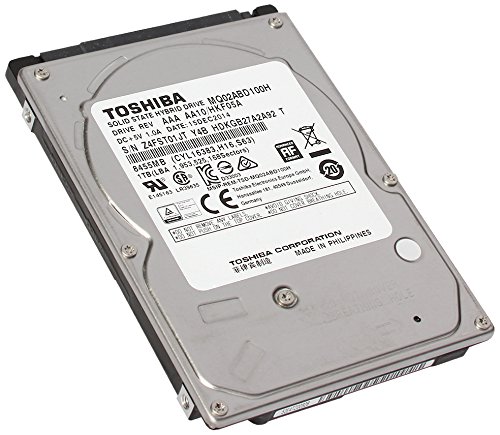Laptop Hard Disk Care: Do’s and Do Not’s for Prolonging Lifespan

Introduction:
Laptops have become indispensable tools, facilitating our work, communication, and entertainment. At the heart of these sleek machines lies the hard disk, a critical component responsible for storing and retrieving our valuable data. As users, understanding the nuances of laptop hard disk care is paramount to ensuring not only optimal performance but also a prolonged lifespan for our devices. In this guide, we will explore a comprehensive set of dos and don’ts, unveiling the best practices that can safeguard your laptop’s hard disk from potential pitfalls and contribute to its longevity. By following these guidelines, you can empower yourself to make informed decisions about how to care for your laptop’s hard disk, thereby enhancing its reliability and safeguarding the integrity of your cherished digital possessions.
Laptop Hard Disk Care: Dos and Don’ts for Prolonging Lifespan
Caring for your laptop hard disk is essential for ensuring its longevity and maintaining your data’s integrity.
Dos:
Keep your laptop on a stable surface:
Placing your laptop on a stable surface like a desk or table ensures proper airflow through the ventilation slots. Adequate airflow helps prevent overheating, which can be detrimental to the hard disk’s health.
Use a laptop cooling pad:
Laptop cooling pads have built-in fans that help dissipate heat effectively. If you engage in resource-intensive tasks, such as gaming or video editing, a cooling pad can significantly lower the temperature of your laptop and reduce strain on the hard disk.
Frequently update your operating system and software:
Regular updates keep your laptop’s operating system and applications secure and optimized. Security vulnerabilities and software bugs can potentially affect the hard disk’s performance, so keeping everything up to date is crucial.
Install reputable antivirus software:
Antivirus software protects your laptop from malware and viruses that might corrupt your data or damage the hard disk. Regular scans and real-time protection are essential for maintaining a healthy computing environment.
Backup your data regularly:
Data loss is a real concern, whether due to hardware failure, accidental deletion, or malware. Regularly back up your data to an external hard drive, network-attached storage (NAS), or a cloud storage service to ensure you have a copy of your important files.
Use a surge protector:
Power surges can occur due to lightning strikes or fluctuations in electricity supply. Connecting your laptop to a surge protector safeguards it from sudden voltage spikes that could damage sensitive components like the hard disk.
Allow proper shutdown:
Shutting down your laptop properly ensures that all active processes are safely terminated, preventing potential data corruption. Avoiding forced shutdowns helps maintain the health of the file system and hard disk.
Keep your laptop physically clean:
Dust and debris accumulation can hinder proper airflow, leading to overheating. Regularly clean the vents, fans, and the laptop’s exterior to ensure optimal cooling and prevent hard disk damage.
Don’ts:
Don’t move the laptop while it’s running:
Traditional HDDs have moving parts, including spinning platters and read/write heads. Moving the laptop while the hard disk is active can lead to physical damage if the read/write heads come into contact with the platters.
Don’t expose your laptop to extreme temperatures:
High temperatures can cause components to expand, potentially leading to data loss or hardware failure. Similarly, extreme cold can affect the hard disk’s performance. Avoid exposing your laptop to temperature extremes.
Don’t fill up the hard disk completely:
Operating systems and applications require space for temporary files, caching, and smooth performance. A nearly full hard disk can lead to slow system responsiveness, increased fragmentation, and reduced lifespan.
Don’t defragment a Solid State Drive (SSD):
SSDs don’t suffer from the same fragmentation issues as traditional HDDs due to their different data storage mechanisms. In fact, excessive defragmentation can reduce an SSD’s lifespan by unnecessarily wearing out its memory cells.
Don’t place heavy objects on your laptop:
Placing heavy objects on your laptop, especially when it’s closed, can exert pressure on the hard disk and other internal components. This pressure might lead to physical damage over time.
Don’t ignore unusual noises:
If you hear unusual clicking, grinding, or repetitive noises from your laptop, it could indicate a failing hard disk. Address the issue promptly by backing up your data and seeking professional assistance to avoid data loss.
By following these guidelines, you’ll be better equipped to care for your laptop hard disk, prolong its lifespan, and maintain the overall health and performance of your system.
Conclusion:
In the intricate ecosystem of laptops, the hard disk stands as a silent guardian of our digital lives. As we’ve delved into the dos and don’ts of laptop hard disk care, a clear path to ensuring its longevity and peak performance has emerged. By adhering to the principles of stability, cleanliness, and regular maintenance, we create a robust foundation for our laptops to thrive upon. The dos, including maintaining proper ventilation, conducting regular backups, and staying vigilant for warning signs, empower us to be proactive custodians of our devices.
Equally important are the don’ts – the cautious steps that shield our laptops from unnecessary wear and tear. Steering clear of extreme temperatures, refraining from overloading storage, and understanding the unique demands of Solid State Drives (SSDs) are pivotal in this regard. Through these mindful actions, we thwart potential catastrophes, whether they be data loss, mechanical failures, or compromised performance.
As we wrap up this guide, remember that every click, every file, and every memory is stored within that small yet resilient hard disk. By integrating these dos and don’ts into our laptop care routines, we not only extend the lifespan of this essential component but also preserve the very essence of our digital existence. So, whether you’re a professional, a student, or an avid enthusiast, let these guidelines serve as your compass, guiding you towards a future where your laptop’s hard disk continues to faithfully serve your needs for years to come.




